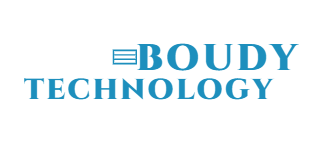How artificial intelligence is transforming agriculture?
Food technology is rapidly permeating our daily lives. From food cultivation to distribution, cooking and food intake, there is no stage that is not affected by artificial intelligence: Food Tech.
In the United States, it is so popular that famous entrepreneurs and stars such as Bill Gates and Leonardo DiCaprio invest in food technology companies. In fact, the popularity of artificial intelligence in the food field is a trend not only in the United States, but also in the global industry.
This article belongs to a series of articles:
Food production and processing industries are experiencing new changes as they incorporate food technology. Now, "ArtifiicaI intelligence farming" has also been introduced into agricultural cultivation, so that the temperature, humidity and nutrients are automatically controlled with Artificial Intelligence, and quality improvement and yield prediction are possible by analyzing the monitored data. This has led to a change in the perception of 'scientific farming' different from conventional farming for the 2030 generation. As a result, the government will also create a 'Smart Farming Innovation Valley' as a development plan. intelligent agricultural development, and in the future, the introduction of agricultural robots using Artificial Intelligence, big data and IoT, energy saving and breed development are expected to spread further.
Agricultural products developed by Artificial Intelligence
First of all, when growing agricultural products, which is the first step of food production, in the future, consumers are expected to grow and use plants directly for cooking without using pesticides at home. There are already many companies that have introduced growers of plants that make this possible. Samsung Electronics and LG Electronics are examples. Vegetables are automatically grown by placing the seeds in the inner shelf of the planter, which is similar in size to a household refrigerator. Temperature, humidity and nutrients are automatically controlled by AI (artificial intelligence). Heliponics, a start-up from Purdue University in the United States, has also introduced the 'Gropot' indoor plant grower.
Artificial intelligence automatically adjusts the temperature and humidity of agricultural products... The entire process of distribution and transportation is tracked seamlessly using blockchain technology.
Artificial intelligence: Big data leading the 4th industrial revolution
Big data that integrates historical information between food production and distribution, life science-based food and nutrition information, and life log information created in individual activities Leading the 4th Industrial Revolution in the manufacturing and distribution stages.
Specific technology trends are emerging like smart farms, smart factories and an Artificial Intelligence regime.
The Fourth Industrial Revolution is described as a new technology that creates new value through the connection between previously unthinkable info²rmation.
The smart farm is a technology that enables precise farming through farm management and decision-making by informing the observation, measurement and response to crop growth and change, and is often considered a field agricultural.
A smart factory refers to a networked and self-organized production artificial intelligence technology to solve key challenges such as enterprise strength, resource and energy efficiency, rapidly changing sales markets and product customization.
As a representative example, the Cheesecake Factory uses IBM's Big Data tool to predict poor quality manufacturing in terms of taste, color, safety, etc. in advance. by analyzing raw material supply data and manufacturing processes scattered in 175 countries across the country, and standardized in quality.


Comments